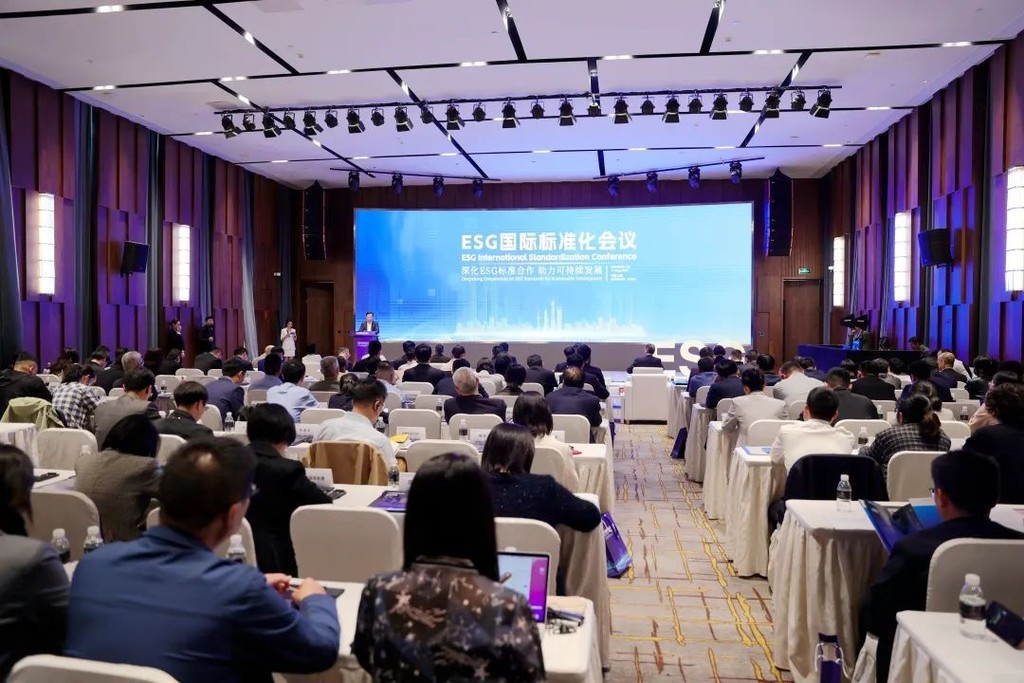Sustainability Newsletter-JUNE,2024

NO.1
State Council releases the “Action Plan for Energy Conservation and Carbon Reduction (2024-2025)”

On May 29, the “Action Plan for Energy Conservation and Carbon Reduction (2024-2025)” released by the State Council aims to reduce energy consumption and CO2 emissions per unit of GDP by approximately 2.5% and 3.9%, respectively, in 2024. It details 27 key tasks across 10 areas, including reducing and substituting fossil fuels as well as upgrading non-fossil energy consumption. Detailed measures include improving the capacity to absorb renewable energy and upgrading energy-consuming equipment. The plan emphasizes enhanced management mechanisms, including intensifying responsibilities and evaluation, launching strict energy-saving review and approval for environmental impact assessment for fixed-asset investment projects, strengthening supervision, and adopting statistical accounting of energy consumption and carbon emissions.
NO.2
MEE and 14 other national authorities jointly released the “Action Plan to Establish National Carbon Footprint Management System”

On May 22, the Ministry of Ecology and Environment and 14 other national authorities jointly released the “Action Plan to Establish National Carbon Footprint Management System”, aiming to establish a unified national system and guidelines for calculating product carbon footprints in accordance with international standards by 2027. China will develop specific carbon footprint calculation rules and standards for 200 key products by 2030, contributing to international product carbon footprints rules development. The plan outlines 22 specific measures addressing the “full chain” of product carbon footprint management. Key measures include establishing a carbon footprint database and a product carbon labeling and certification system, promoting the international alignment of related rules, strengthening the calculation of product carbon footprints, and improving the protection of carbon footprint data property rights. This plan serves as the roadmap and blueprint for developing China’s carbon footprint management system in the coming years.
NO.3
NDRC issued the “Notice on Conducting In-depth Energy Efficiency Analysis for Major Energy-consuming Entity”

On April 30, the NDRC issued the “Notice on Conducting In-depth Energy Efficiency Analysis for Major Energy-consuming Entity”. The notice requires all regions to carry out in-depth energy efficiency analyses for major energy-consuming entities to promote energy conservation and carbon reduction across various industries, and to update energy-consuming equipment. All regions must establish energy management files for major energy-consuming entities with annual comprehensive energy consumption above 10k tce by the end of 2024 and for those with annual energy consumption above 5k tce by the end of 2025. The notice sets four key tasks: establishing energy management files for major energy-consuming units, mapping out energy efficiency levels in key areas and industries, assessing major energy-consuming equipment, and forming a reserve of projects for energy conservation, carbon reduction, and equipment renewal. Major energy-consuming entities will be required to report energy utilization, undergo energy conservation inspections by authorities, receive audits and assessments from third-party agencies, and implement an online monitoring system.
NO.4
Two ESG group standards released in Shanghai

On May 11, the ESG International Standardization Conference in Baoshan focused on "Deepening Cooperation on ESG Standards for Sustainable Development". Shanghai Federation of Industrial Economics released the "Guidelines for Corporate ESG Report Preparation" and "Criteria for Corporate ESG Report Evaluation". The two released group standards are tailored to China's conditions and align with international ESG standards. These standards will create competitive advantages for businesses by providing a framework for consistent and transparent ESG reporting and evaluation. They also serve as a reference for authorities and stakeholders to assess the content and quality of corporate ESG reports, facilitating report verification and rating.
NO.5
MEE released the “China Climate Change Adaptation Progress Report (2023)”

On May 15, the Ministry of Ecology and Environment released the “China Climate Change Adaptation Progress Report (2023)”, which comprehensively summarized the progress of our actions in climate change adaptation from six aspects: policy system, climate change monitoring and risk management, natural ecosystem, economic and social system, regional pattern, security mechanism. It also highlights achievements of climate change adaptation in water resources, terrestrial ecosystems, marine, agriculture and health, contributing to mitigating climate change impacts and enhancing climate resilience.
-END-